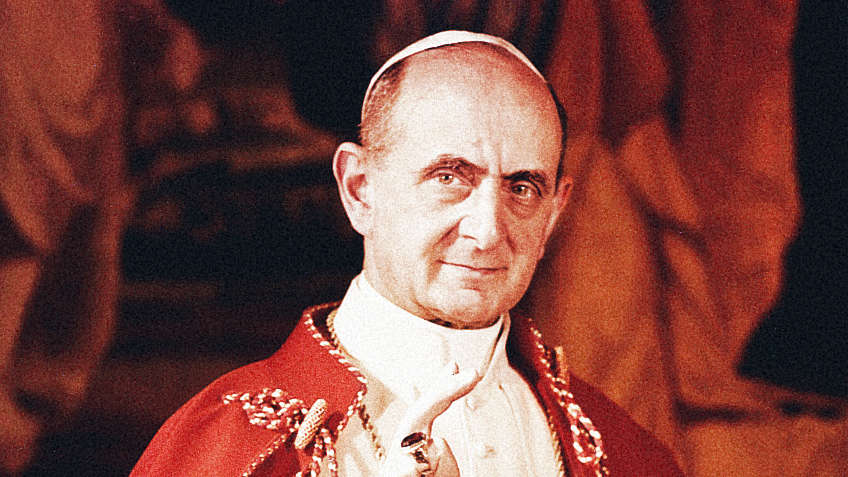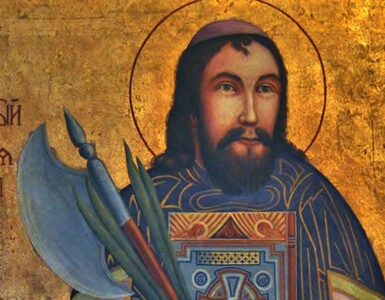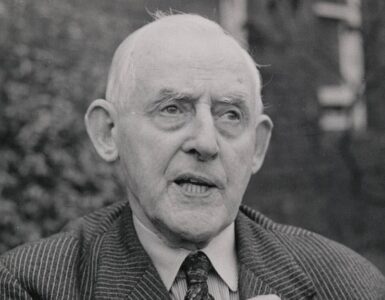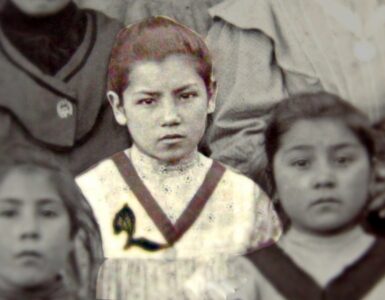One of the great Popes of the Church is surely Pope St Paul VI. In his 15 fifteen-year papacy, Pope Paul wrote some 7 encyclicals, 12 apostolic exhortations and hundreds of homilies, letters as well as speeches.
Pope Paul VI, whose feast day was celebrated on my Mum’s birthday, namely Thursday 29 May 2025, is deeply marked by major contributions which did a lot of good to the Church and the world at large. Giovanni Battista Montini, his full baptismal name, kept going on and completed the Second Vatican Council. In fact, Paul VI not only presided and finalised all the sessions of this important pastoral council of the Church but started implementing the reforms it designed. Among them we find the revision to the liturgy, structural changes within the organization of the Church, the foundation of the World Synod of Bishops together with encountering bishops to discuss the questions facing the Church nowadays.
From the ad extra standpoint of the Catholic Church, St Paul VI worked a lot to improve relations with other Christian churches, particularly the Eastern Orthodox and Protestant churches. He made the historical meeting with Athenagoras I, the Ecumenical Patriarch of Constantinople, in 1964 and 1967, to revoke the reciprocal excommunications of the Great Schism of 1054. Paul VI was also the first Pope to travel around the world since he visited Israel, India as well as Latin America. With every reason he can be called the pilgrim pope.
Since the Council spoke of the Church as being in the world to show Christ, the Light of the Nations, Pope Paul felt it was his vocation to be a faithful servant of the Council. Hence, he advanced social justice, particularly by the encyclical Populorum Progressio (The Progress of Peoples). In that encyclical Pope Montini stressed the importance of having a holistic view of development, tackling the needs of the poor and championing social justice.
Already within a world eclipsed by the drive to regulate births through the use of artificial contraception, Pope Paul VI published Humanae Vitae in 1968 not only to argue against birth control by highlighting the inherent dignity of human life and the sacredness of married love but also stressed the importance of responsible parenthood, which includes considering the physical, economic, psychological and social conditions of a family before deciding the number of children to bear and raise. In this encyclical, besides reaffirming the Church’s teaching regarding the sanctity of life and relevance of the family, St Paul VI also examined the future impact of contraception on human dignity.
From the structural point of view, Pope Montini introduced some innovative practices within the Church like establishing age limits for certain positions, gave the opportunity to other countries to have more cardinals and creating a mechanism of frequent meetings of bishops. Interesting is the fact that the three popes that followed him, namely John Paul I, John Paul II and Benedict XVI were the cardinals he himself created.
All this openness is also to be found in his richly profound teaching he left to us in his great magisterium. Totally open to the Holy Spirit and reading the signs of the times, St Paul VI saw the Church not only as the one who preserves the orthodox of doctrine but also to share these gifts with others. In fact, in his encyclical on the Church, Ecclesiam Suam, of August 6, 1964, Pope St Paul VI writes:
Merely to remain true to the faith is not enough. Certainly we must preserve and defend the treasure of truth and grace that we have inherited through Christian tradition. As St. Paul said, “keep that which is committed to thy trust.” (42) But neither the preservation nor the defense of the faith exhausts the duty of the Church in regard to the gifts it has been given. The very nature of the gifts which Christ has given the Church demands that they be extended to others and shared with others (no.64).
Moreover, being a Christian does not mean being cut off from the world. On the contrary, we as Christians are called to be closer to the world and its people by sharing the salvation we are given in and through Christ thanks to the Church. We as Christians are called by our baptism to be concerned and loving and never aloof. Within the same encyclical Pope Paul VI said:
The fact that we are distinct from the world does not mean that we are entirely separated from it. Nor does it mean that we are indifferent to it, afraid of it, or contemptuous of it. When the Church distinguishes itself from humanity, it does so not in order to oppose it, but to come closer to it. A physician who realizes the danger of disease, protects himself and others from it, but at the same time he strives to cure those who have contracted it. The Church does the same thing. It does not regard God’s mercy as an exclusive privilege, nor does the greatness of the privilege it enjoys make it feel unconcerned for those who do not share it. On the contrary, it finds in its own salvation an argument for showing more concern and more love for those who live close at hand, or to whom it can go in its endeavor to make all alike share the blessing of salvation (no.3).
But this care for others has a source: the Eucharist. In fact, Pope St Paul VI teaches us that the Eucharist is the heart and centre of the liturgy which, for the Church, has all the prominence in her life as the Body of Christ. The Eucharist is the greatest school which teaches us to live in communion with Christ and one another not just mystically but also in everyday life. In his encyclical on the Holy Eucharist of September 3, 1965, Paul VI tells us: For if the sacred liturgy holds first place in the life of the Church, then the Eucharistic Mystery stands at the heart and center of the liturgy, since it is the font of life that cleanses us and strengthens us to live not for ourselves but for God and to be united to each other by the closest ties of love (no.2).
Sharing is the key for authentic development. On the other hand when egoism and self-centeredness creeps in and one becomes greedy then the real development is not only halted but killed. In his encyclical on the development of peoples issued on March 26, 1967, Populorum Progressio, Pope St Paul VI wrote:
Neither individuals nor nations should regard the possession of more and more goods as the ultimate objective. Every kind of progress is a two-edged sword. It is necessary if man is to grow as a human being; yet it can also enslave him, if he comes to regard it as the supreme good and cannot look beyond it. When this happens, men harden their hearts, shut out others from their minds and gather together solely for reasons of self-interest rather than out of friendship; dissension and disunity follow soon after. Thus the exclusive pursuit of material possessions prevents man’s growth as a human being and stands in opposition to his true grandeur (no. 19).
Finally, another extraordinary reflection from the richly wise magisterium of Pope St Paul VI is the fact that peace is brought about if we keep repeating the fundamental principle of human brotherhood. In his message for the celebration of the Day of Peace, January 1, 1971, Pope Paul VI wrote: True peace must be founded upon justice, upon a sense of the intangible dignity of man, upon the recognition of an abiding and happy equality between men, upon the basic principle of human brotherhood, that is, of the respect and love due to each man, because he is man. The victorious word springs forth: because he is a brother. My brother, our brother.
Pope Saint Paul VI, as a faithful servant of Christ and His Church, you prayerfully sought to share the Church’s ancient and glorious faith with the whole world. Please pray that I will be a faithful servant of Christ’s Church, doing all I can to bring God’s grace and mercy to all. Pope Saint Paul VI, pray for me.






























